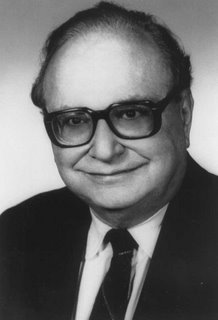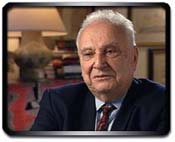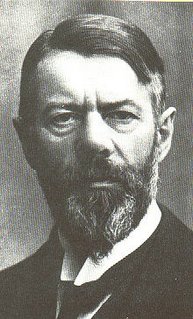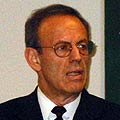
 Keywords: Seymour Martin Lipset; Trotskyist; The First New Nations; Philip Selznick; Elsie Lipset; Earl Raab; Free Speech Movement; Clark Kerr; Stein Rokkan; Party Systems and Voter Alignment; Ann Swidler; Alex Inkeles; Henry Kissinger; John Birch Society; Agrarian Socialism; Continental Divide; Sydnee Lipset; Henrique Cardoso; Francis Fukuyama; Carl Gershman; National Endowment for Democracy; Dick Roman; Jason Lakin.Marty Lipset
Keywords: Seymour Martin Lipset; Trotskyist; The First New Nations; Philip Selznick; Elsie Lipset; Earl Raab; Free Speech Movement; Clark Kerr; Stein Rokkan; Party Systems and Voter Alignment; Ann Swidler; Alex Inkeles; Henry Kissinger; John Birch Society; Agrarian Socialism; Continental Divide; Sydnee Lipset; Henrique Cardoso; Francis Fukuyama; Carl Gershman; National Endowment for Democracy; Dick Roman; Jason Lakin.Marty Lipset died on New Years Eve — December 31, 2006. He was 84. Many people will write about his intellectual productions, for when I checked last, he was the most frequently cited writer in American academia. He was my mentor, and what I’ll write about is mainly my personal recollections of him. I was his research assistant for about five years, both in Berkeley and at Harvard. Though he was not quite a decade older than I, I regarded him as a father figure, for he was already famous when I went back to college after a ten-year hiatus.
All along, I liked and respected Marty, and I owe him more than I can say. He was generous, not just to me but to the world in general. I never once heard him say anything mean-spirited about another human being.
I can’t remember exactly when we met, though it was probably in 1962. As a single mom I needed lots of part-time jobs, and one summer I worked at the Institute of International Studies in Berkeley. Lipset was its director and my job was to type and proofread manuscripts, one of which was his book
The First New Nation. I remember very little about its content, for the commas and footnotes required most of my attention. I did recognize in it Lipset’s enduring preoccupation with the circumstances under which
democracy develops.
Later, as a graduate student, I hit the jackpot. Working at the Survey Research Center I heard that Lipset had a box of IBM cards about a survey conducted in eleven Indian universities that he wanted analyzed. I got the job. His new research project was housed in the basement of Phil Selznick’s Center for Law and Society.
Eight or ten of us grad students worked there. Lipset was a big guy who had to stand stooped over to keep from bumping his head in that office. This was his comparative study of
university student politics around the world. My own part of it became a boondoggle: I was paid for the work; I got course credit; I made it into my MA thesis; and just before I was to it turn in, the department changed the rules so I could hang onto it and make it into my Ph.D. dissertation. Along the way, Marty got me a fellowship for one year to work on it. I knew little about higher education in India, or about Indian politics, yet it was an ideal project for me. I was to finish it at Harvard in 1969.
I started doing editing jobs for him. Sometimes I’d bring a manuscript up to his house in the Berkeley hills. There I became acquainted with his wife Elsie and with Earl Raab, who sometimes came to work with Marty on one of their joint studies. Once I arrived with a manuscript for the special issue of
Comparative Education Review that he was editing. I found him staring intently at something in his front yard, completely motionless for a long time. I asked what he was doing.
“I’m trying to see it move,” he replied. He was watching young bamboo plant, which had grown four inches that morning. If he watched closely enough he expected to catch it growing.
While our study of student politics was in full swing, the
Free Speech Movement broke out and disrupted the normal operations of the Berkeley campus. It is hard to say what it was really about, since every day a new set of grievances would emerge, extending far beyond the issue of free speech. There were objections to the impersonal, and imperial, nature of governance that kept students in a subordinate status, whereas the administration functioned
in loco parentis.
The initial protests were basically rather civilized, led by well-groomed, Grade A students. The “FSM’s” most famous incident occurred when students sat surrounding a police car and were arrested. This was classic civil disobedience, in contrast to the crude and dangerous struggle that developed a few years later, when fire-bombings as tear-gassings would become an everyday occurrence, provoked not by students but biker gangs.
During even the FSM period, Marty’s position seemed obviously painful, though I did not discuss it with him. Most of the sociology department, including his colleagues, supported the student protests, whereas he was a close friend of the university’s president,
Clark Kerr, the bete noir of the movement. Neither then nor later did I hear Lipset say anything critical about anyone, but he was engaged in a comparative international study of exactly this phenomenon and he was not inclined to take the protesters’ side overtly. Whatever conciliatory interventions he may have made behind the scenes clearly did not succeed, and he was increasingly vilified on campus. For example, one day in the library, I was carrying a parcel addressed to him, which a nearby student scrutinized. He said, “Oh, you have something for
Seymour Martin Lipset? I hate the bastard!” I’ll bet he’d never laid eyes on Lipset.
That term Marty moved to Harvard and never returned to Berkeley. Yet I never heard him speak of the period with anger, which he had reason to feel. I never understood what people had against him, especially since the people who worked for him voiced few substantive criticisms. (Sometimes they complained of being insufficiently acknowledged for their contributions but most of us knew that we were giving only trivial help at best.) Eventually I developed two theories to account for his undeserved unpopularity.
First, he was interpersonally a bit awkward. He wasn’t one to hail you in a hearty way, and maybe that made some people consider him gruff. My best conversations with him were by phone. He would call and talk for an hour at a time, clearly enjoying it — because, I think, he didn’t have to look at me. (Maybe he was even doing something else at the same time. He could multi-task like nobody else; I was in his office once when he was giving a telephone interview to
Time Magazine while also reading a student’s paper.)
The second reason some radicals resented Lipset was that his politics had changed gradually in ways that they regarded as a betrayal. The young Marty had been a
Trotskyite, but in his old age he was sometimes called a
neoconservative — an identity that he apparently neither claimed nor resisted (though I have heatedly denied it on his behalf). It would be hard to pin dates on this political trajectory, but I remember that he was already writing speeches for
Hubert Humphrey’s presidential campaign in 1968. (At least someone told me so — he never bragged, so he never mentioned it in my presence, possibly because he knew I preferred the anti-war Democrat Eugene McCarthy.)
Throughout the next year or so, Marty kept sending me manuscripts to edit in Berkeley. I remember especially the fine article he and
Stein_Rokkan wrote to introduce their edited volume,
Party Systems and Voter Alignments. They kept folding extra dimensions into their model until it got too complicated for my poor brain (particularly since it involved
Talcott Parsons’s a-g-i-l paradigm) but the first phases of the theory were clear. For example, the obvious distinction between territorial and functional types of cleavage is still useful. (Unconsciously, I must have drawn on that later when proposing a voting system that might reduce secessions.) Lipset and Rokkan explained the lasting political cleavages in Europe and America as resulting from two revolutions — national and industrial. The national transformation (e.g. the French Revolution) resulted in center-periphery conflicts between the national culture and various subsidiary ones, such as religious, ethnic, and linguistic struggles, plus the church-state conflict. The economic revolution gave rise to conflicts between landholders and industrialists, and later to class conflicts between capitalists and workers.
In 1967 I moved to Harvard to work for Marty and write my dissertation, which he supervised. He had three offices there — one at the
Center for International Affairs, one at the School of Government, and one in William James Hall, where most of the social sciences were based. I shared his International Affairs office with
Ann Swidler until she moved to Berkeley to enter graduate school.
In those days the Center for International Affairs was occupied largely by Henry Kissinger and his staff and thirty foreign fellows. They filled several offices around ours, across the large central hall where distinguished-looking people gathered to drink sherry before lunch. Kissinger had a huge budget to bring high-ranking foreigners to Harvard for a year at a time. Their only duty was to attend a seminar in which each one would present at least one paper. I usually ate with them in the lunch room, and often Marty ate there too with his friend
Alex Inkeles, who was carrying on a large comparative study of modernization over in William James Hall.
There were other parties too in the central hall outside Lipset’s office. Samuel Huntington, for example, always brought to his social functions several women who wore huge, stylish hats. This place was nothing like the Berkeley I’d left, where every public place was filled with people sprawled sullenly, expressing their disdain for the Vietnam War. Harvard was home to
Kissinger and
Huntington, who were famously strategizing the course of that war.
Lipset was not. His orientation was less that of a policymaker than of an inquisitive observer with a natural equanimity that kept him from becoming agitated about the political dramas of the 1960s. His close friend Alex Inkeles engaged in public debate with Henry Kissinger, including in one forum held in a stadium to accommodate the large audience. His objective was to provide dispassionate analysis of the war and to give voice to opposition to the war on analytic grounds rather then purely emotional ones. I was surprised when I heard that Lipset was backing Hubert Humphrey, who as vice-president in Lyndon Johnson’s administration had revealed little of his previous progressiveness — at least with respect to the war, which was the issue of highest priority during that election.
Ann and I worked together on Marty’s new study of the radical right, especially exploring the
John Birch Society, sometimes attending public lectures by its founder, Robert Welch, sometimes presenting ourselves to recruiters, who would impart their conspiratorial insights to us. The Society promoted self-reliant individualism and local government, without income taxes. It was intensely anti-internationalist, arguing that many American presidents (notably Eisenhower) had been agents of the Communist Party, which itself had been founded in the nineteenth century by an older conspiracy, the Illuminati, which still controlled it.
Lipset had collected masses of data from several sources about radical right groups. What became apparent was that the radical right had two fairly distinct components: first, a type of economic conservatism (e.g. opposition to “big government” and a desire for economic individualism as opposed to the welfare state) and second, a “monistic” search for bad guys — say, blacks, Jews, or Communists — to blame for all the world’s problems. Some radical right-wingers such as the John Birch Society displayed both traits. Others, on the other hand, while also being monist bigots, actually wanted the economic supports of a welfare state. These, whom we called “Rednecks,” were more often uneducated persons of lower social class. (Anyone familiar with Lipset’s earlier work on working class authoritarianism might have anticipated this explanation.)
It would be hard to find a right-wing platform that would appeal to both the John Birch types and the Rednecks. Besides these two categories, we identified two other distinct constellations: what we called the “Old Guard,” who were conservative about economic matters but tolerant about social issues, such as civil liberties and other aspects of democracy, and finally the “Consistent Liberals,” who supported an active government addressing economic issues and promoting democracy, civil values, and egalitarian tolerance. We ourselves, of course, belonged in this last group. In 1970 Lipset and Raab published the book as
The Politics of Unreason.
By then Lipset, Inkeles, Ann and I had all moved back to California. In Marty’s case, the move was motivated by his concern about his wife Elsie, who had a slow-growing type of lung cancer that would require surgery repeatedly. She had never liked New England, so they moved to Stanford and lived there twelve years before her death. I was no longer working with Marty, but instead with Inkeles on a textbook.
In 1971 I took a position at the University of Toronto, where I learned certain aspects of Marty’s career that were news to me. He was still a major figure in Canadian sociology, having written his Ph.D. thesis about a socialist farm movement in Saskatchewan and then having taught in the U of T sociology department for two years. One of the first things I needed to do was read his book,
Agrarian Socialism and assign it to my own undergraduates.
Lipset had chosen this research project because of his consuming interest in a problem that continued to fascinate him all his life: Why does the United States have no socialist party? Since a socialist party, the CCF, had actually emerged in the wheat-growing province of
Saskatchewan, he hoped to learn from their experience and help apply it to other wheat-growing states below the border. The CCF arose, he found, in a democratic, activist society where farmers learned by forming collective organizations to operate grain elevators and to pool their wheat sales through a single marketing board. Yet when the CCF actually came to power, it did not carry out many of the radical proposals its members had cherished beforehand. It did implement a provincial medical care system, but in other ways it restrained itself. Lipset attributed its hesitancy to a natural democratic desire to maximize votes when the electorate was far from unified. He recognized that democracy itself would always constrain socialism.
Lipset’s basic question was far from conclusively answered, and later he came to believe that the Canadian electoral system played a bigger part in the emergence of socialism than his book had suggested. And yet, even that answer was not his final opinion. Eventually he wrote another book with Gary Marks,
It Didn't Happen Here: Why Socialism Failed in the United States, grappling with the question, and by then he had again de-emphasized the importance of the electoral system. Instead, he concluded, there were basic values — especially individualism — in the United States that impeded any enthusiasm for collective answers to societal problems. If that was his final word on the subject, he left plenty of aspects for other sociologists to explore further. In the meantime, the CCF had institutionalized itself as the
New Democratic Party and was a significant player on both the federal and provincial levels across Canada. It is a quintessential social democratic party resembling those so widespread in Europe.
Living in Canada, my encounters with Marty became infrequent. Serving on a committee at my college, I was able to invite him here for a week once to give a series of lectures and television interviews. I was becoming fully engaged in peace and disarmament work, and was glad to see that Marty was also active, both in such Jewish organizations as University Professors for Peace in the Middle East, and as a board member of the new U.S. Institute of Peace. In San Francisco once I saw them socially and mentioned to Elsie that I admired a newspaper article Marty had written proposing a solution to the Israeli/Palestinian conflict. She said she actually disagreed with him on that matter; I think it was because of her increasing observance of Judaism and her commitment to Israel but I did not press her for an explanation. Soon thereafter she died.
I was invited to contribute a couple of articles that kept me familiar with his work. One was a piece on education and democracy for an encyclopedia he was editing on democracy. It was far harder than I expected. Amazingly little had been written on the subject. The best articles were some of Marty’s own, dealing with the importance of intellectuals in a democratic society. The obvious approach would be to show the importance of varying
levels of education in a society. What is more interesting, however, is the recognition that different
types of education have different effects. People trained for narrow professional specializations are not inclined to stray far beyond their expertise by supporting political criticism. On the other hand, intellectuals educated in the humanities or social sciences define their roles broadly and therefore tend to become engaged, especially in leftist politics.
Marty’s comparisons of Canada and the United States continued to fascinate him and in 1990 he published another book on the topic,
Continental Divide, which a journal asked me to review. It was a brilliant study, easy to praise — and yet I also had to write a caveat:
“While writing this book, Lipset could not have anticipated (or at least, no one else in Canada did) that within two years the nation would be on the verge of breaking apart.
“Lipset treats American-style ‘anti-statism’ as the chief impediment to an effective national government. Since Canadians are not known to harbor such opposition to strong government, nothing in Continental Divide would lead one to expect the Canadian government to be in such a crisis. The cohesion of Canada is at risk — and not just from the threat of Quebec separatism.”
In Miami in 1993, Marty delivered his presidential address to the American Sociological Association. Some feminists had tried to keep him from receiving this honor, but Ann and I declared firmly that all such criticism was unfair. He was a good man. Yet every famous person’s reputation seems to acquire a life of its own that’s hard to correct.
Nobody besides Marty has ever been both president of the American Political Science Association and the American Sociological Association. His ASA address was called, “The Social Requisites of Democracy Revisited.” The initial paper on this subject had been a remarkable breakthrough, identifying various factors that made democracy more likely. In the meantime, a whole new wave of democratization unexpectedly had taken place, including the transition of Communist countries to democracy. His paper appraised these circumstances. He also organized a panel there with other analysts, including the pessimistic Samuel Huntington, who had also written about the new democratic trends but was predicting by then that the “clash of civilizations” might overwhelm these fledging projects of freedom.
I hadn’t seen Marty for several years, and it was good to meet his new wife, Sydnee, an energetic, lively woman who had been a TV producer in San Francisco until they married and moved to George Mason University in Virginia. I liked her immediately.
There was one other good visit with Marty after that when he received an honorary doctorate at the University of Toronto. I organized a faculty dinner in a restaurant for him and we had a chance to tell him how much he meant to us all.
But in 2001, before the terrorist incidents, Marty underwent valve surgery on his heart. Although the operation was successful, it caused a severe brain hemorrhage from which he would never recover. He was in hospital for many months and we were asked to write letters to him that would exercise his long-term memory. We letter-writers were called “Team Lipset,” but it was not an easy responsibility. I sent e-mails about Canadian political events. Once or twice I phoned, which was a bad idea. Having to talk or even listen was too difficult for him, and he abruptly told me to end the conversation. I knew I shouldn’t be hurt by it, but I couldn’t help it. Having known him as a kind, patient person for so many years made me terribly sad about this. Eventually, however, he moved home to their apartment in Virginia, to be tended by nurses.
Three years ago the National Endowment for Democracy inaugurated a “Seymour Martin Lipset Democracy Lecture Series” and struck a large medal to award Marty. They planned to hold one lecture every year, delivered both in Toronto and Washington. I went down for the first one, by the former Brazilian president,
Henrique Cardoso. But first I went to the Lipset apartment in Arlington.
Marty’s condition was worse than before. As I entered and began removing my coat, Marty was sitting propped up, and he called out “Hello, Metta!” Probably his nurse had told him to say it because that was the most he had to give. Mostly his eyes were closed and when he opened them, I doubted that he was seeing anything at all. Sydnee said that he understood everything that was said, but I don’t know how she could tell. Carl Gershman and his staff from the NED arrived to visit with Marty, but he wasn't able to respond at all. Later that evening, Sydnee received the medal for him at the ceremony.
The next two “S. M. Lipset Democracy Lectures” were in Toronto. Sydnee came for the first one, by
Francis Fukuyama.
Dick Roman and I had brunch with her and I drove her to the airport, promising to meet her in San Francisco, where she sometimes visited her invalid mother. I phoned once in her absence and the caregiver held the phone to Marty’s ear so I could thank him for being in my life. Of course, he said nothing.
And now he is gone. He had been an invalid, experiencing pain, for over five years. It was past time for him to go. In the meantime, his former research assistant,
Jason Lakin, had written the book that he had been preparing,
The Democratic Century. It’s a fine study. It’s not quite up to Lipset’s own level — but then, no one would expect that of any other sociologist. He was singular — an extraordinary human being.
Goodbye, Marty. Thanks for everything.









